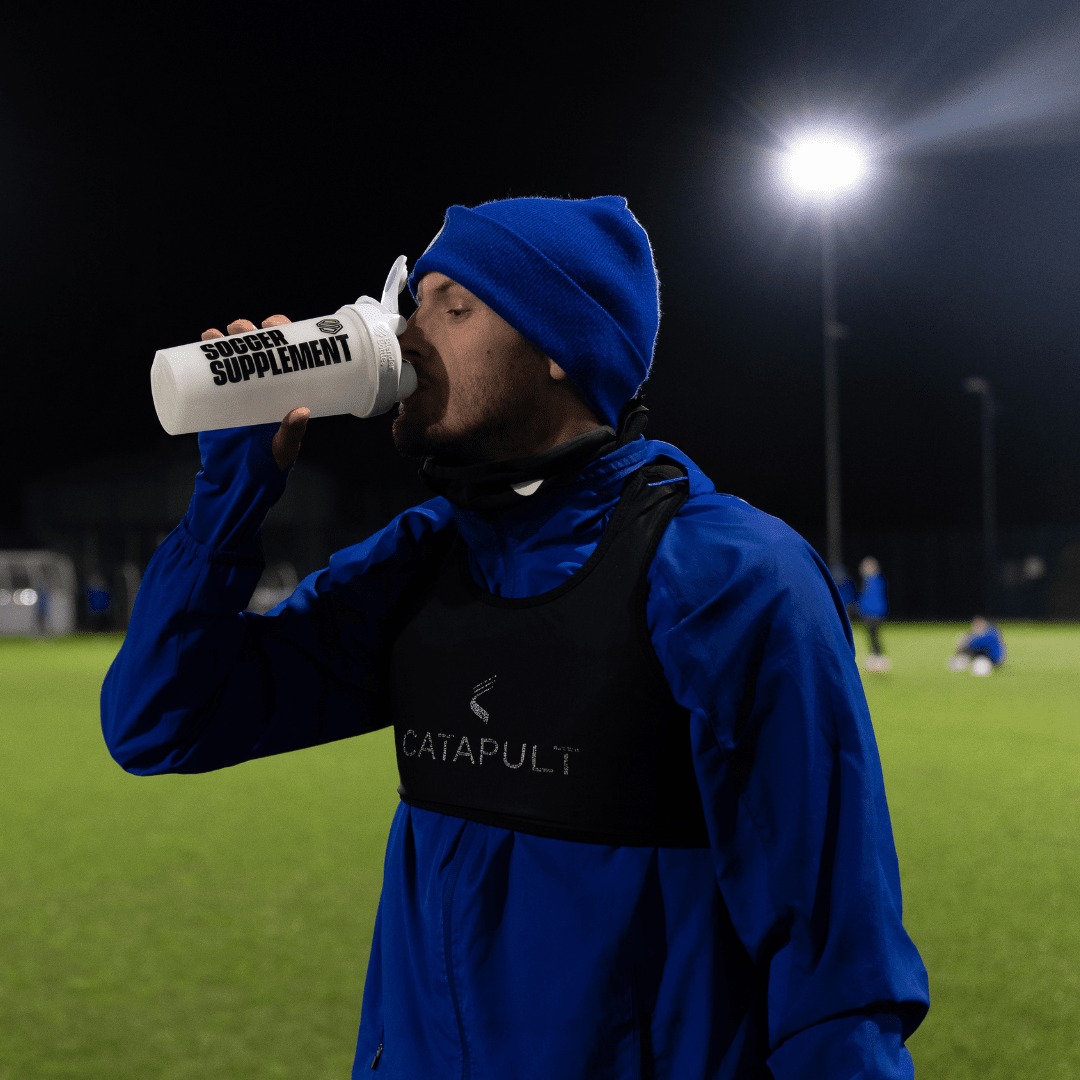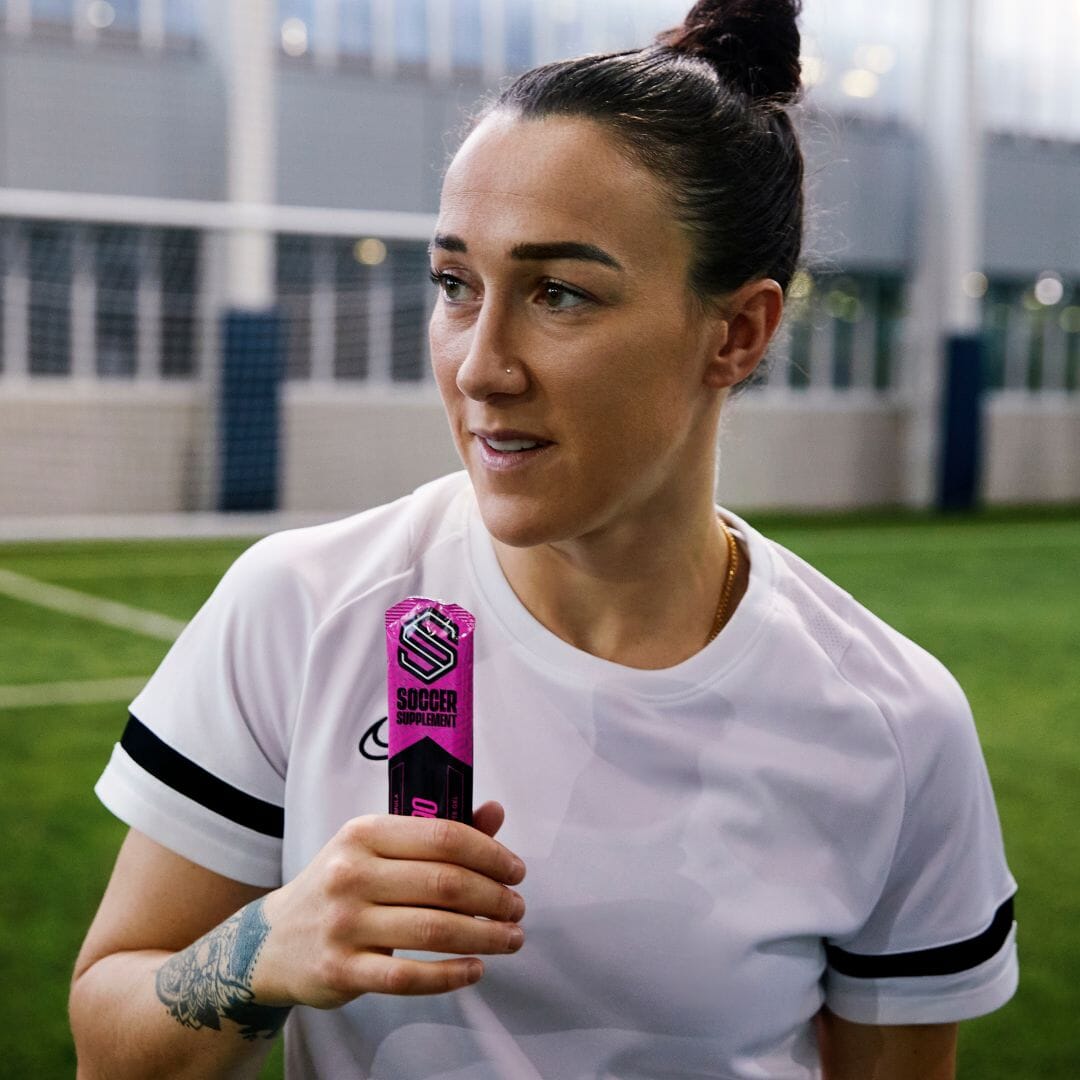INTRODUCTION
Everyone is familiar with caffeine and its effects. However in this post we review its surprising benefits to Footballers.
The use of caffeine energy gels, and caffeine-containing pre-workout supplements, have become increasingly popular in recent years. The aim of these products when taken in the hour leading to training or a game are to improve performance by means of increasing alertness, motivation, strength, endurance capacity, technical skill and decision making.
Caffeine is almost always the primary ingredient used in pre-workout products, and is perhaps the most widely studied and research-proven of all ergogenic aids. Indeed, caffeine has been consistently shown to improve both cognitive and physical performance across a range of endurance sports such as running, cycling, rowing, swimming, etc.1 These claims all sound great on paper for these sports, but let’s see how football compares.
CAFFEINE IN FOOTBALL
Numerous data suggest that caffeine also improves the physical and technical elements of performance that are inherent to football match-play. For example, caffeine can enhance repeated sprint and jump performance,2 reactive agility,3 and passing accuracy,4 during intermittent-type exercise protocols, particularly in sleep deprived states.5
For instance, in the study by Gant and colleagues,2 they showed that adding 3.7mg per kilogram of body mass of caffeine to a carbohydrate drink - which is the equivalent to 2-3 standard red bulls for most people - improved average 15-metre sprint times during 90-minute intermittent shuttle-running trials.
In addition, explosive leg power assessed via countermovement jumps were also improved when the players took caffeine (52.9cm vs. 51.7cm). An interesting finding of this study was that over the final 15 minutes of exercise, mean sprint times were over a tenth of a second better in the caffeine group versus the non-caffeine group (2.48s vs. 2.59s).
During match play, football players may experience progressive fatigue, apparent as a graduate decline in the capacity to perform physical and technical skills. Players may also experience temporary fatigue during match play, evident as a transient reduction in physical performance in the minutes following a particularly physically demanding period of the game. This is consistent with the observation that most goals are scored are scored towards the latter stages of each 45-minute half, as well as the second half as a whole.6,7
As such, these results provide a strong case for the inclusion of a pre-match supplement in order to help reduce symptoms of progressive fatigue by maintaining key aspects of physical performance.
In another study, Duvnjak-Zaknich and colleagues showed that 6mg per kilogram of body mass - which is the equivalent to 4-5 standard red bulls for most people - led to a statistically “almost certain benefit” (3.9% better than placebo) for reactive agility tests during an 80-min (4 × 20 min) simulated team-game, intermittent running protocol.3 These results suggest that caffeine ingestion may be beneficial to agility in footballers during a match, when both fresh and fatigued.
In a well-designed study, Foskett and colleagues demonstrated that 6mg per kilogram of body mass improved both passing accuracy and jumping performance (3.9% better than placebo), in 12 male footballers during a 90-min football-specific intermittent running trial.4
BENEFITS
Given the demands of football training and match play, the aim of a pre-training/match caffeine would be to:
- Increase mental alertness/concentration
- Reduce feelings of fatigue
- Improve passing accuracy and other skills
- Improve endurance capacity and repeated sprint ability
- Improve power production
HOW TO USE
As such, my recommendations are as follows:
- Consume 200mg of caffeine, 30 minutes before a game. This is one Focus90® gel.
- Experiment with caffeine doses during training sessions to see which suits you best.
Click here to buy Focus90® caffeine gels
References
1. Burke, L. M. Caffeine and sports performance. Appl. Physiol. Nutr. Metab. 33, 1319–34 (2008).
2. Gant, N., Ali, A. & Foskett, A. The influence of caffeine and carbohydrate coingestion on simulated soccer performance. Int. J. Sport Nutr. Exerc. Metab. 20, 191–197 (2010).
3. Duvnjak-Zaknich, D. M., Dawson, B. T., Wallman, K. E. & Henry, G. Effect of caffeine on reactive agility time when fresh and fatigued. Medicine and Science in Sports and Exercise 43, 1523–1530 (2011).
4. Foskett, A., Ali, A. & Gant, N. Caffeine enhances cognitive function and skill performance during simulated soccer activity. Int. J. Sport Nutr. Exerc. Metab. 19, 410–423 (2009).
5. Cook, C. J., Crewther, B. T., Kilduff, L. P., Drawer, S. & Gaviglio, C. M. Skill execution and sleep deprivation: effects of acute caffeine or creatine supplementation - a randomized placebo-controlled trial. J. Int. Soc. Sports Nutr. 8, 2 (2011).
6. Armatas, V., Yiannakos, a & Sileloglou, P. Relationship between time and goal scoring in soccer games: Analysis of three World Cups. … Perform. Anal. … 7, 48–58 (2007).
7. Armatas, V., Yiannakos, A., Galazoulas, C. & Hatzimanouil, D. Goal scoring patterns over the course of a match: Analysis of Women’s high standard soccer matches. Phys. Train. (2007).







